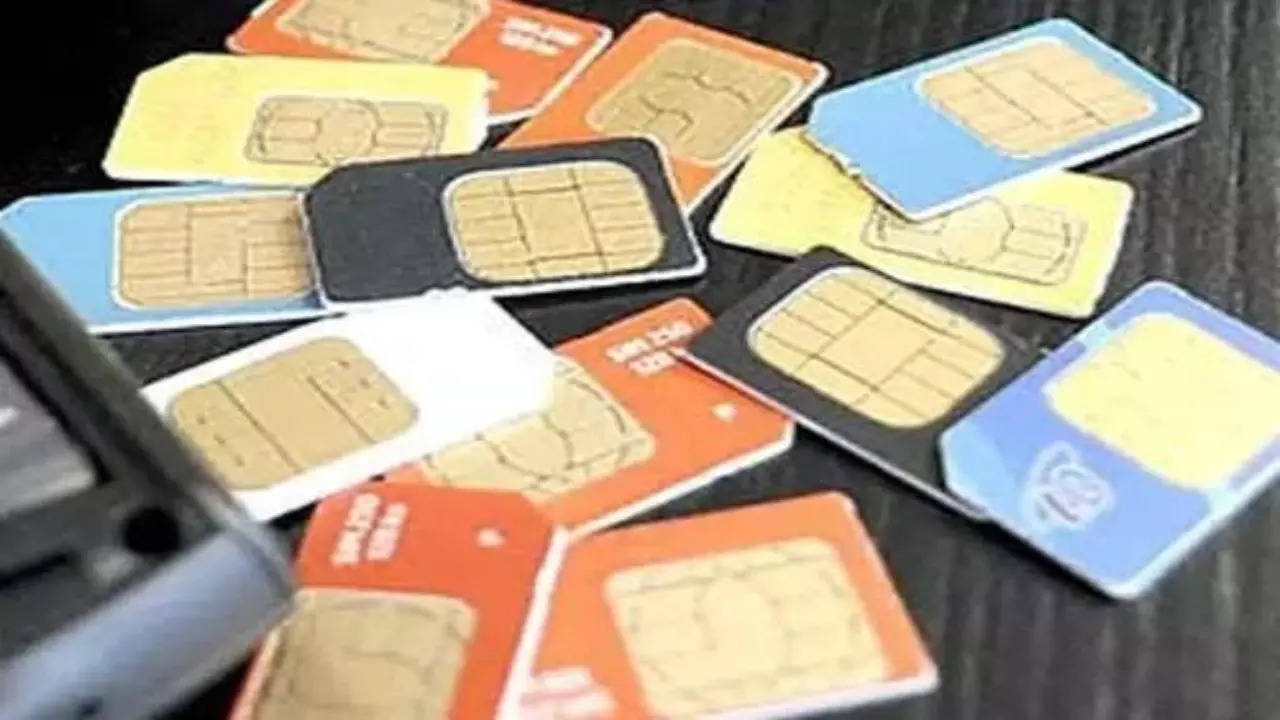[ad_1]
NEW DELHI: The federal government on Monday took key steps to overtake and modernise the archaic Indian Telegraph Act of 1885 and associated legislations, seeking to create a sturdy safety equipment to guard vital cellular networks from cyberattacks and different unlawful break-ins, whereas stipulating a penalty of Rs 50,000 for unsolicited messaging to customers, that can go as much as Rs 2 lakh per message for repeat offenders who additionally face the specter of suspension of their telecommunication companies.‘Telcos cannot promote SIMs with out biometric-based identification’ The much-awaited Telecommunications Invoice, 2023, tabled within the Lok Sabha by communications minister Ashwini Vaishnaw, is billed as a significant reform push and seeks to usher in a liberalised regime for heralding satellite-based telephony within the nation by giving entry to spectrum on an administrative foundation, in contrast to the common follow of auctions for terrestrial airwaves. This may make it simpler for corporations akin to Elon Musk’s Starlink, Jeff Bezos’s Undertaking Kuiper, and Bharti’s OneWeb to start satellite tv for pc communications companies within the nation. On Monday, TOI had solely written about this and different provisions.Communications companies via over-the-top (OTT) gamers akin to WhatsApp, Fb messenger, Instagram chat, Apple’s Facetime, Skype and Microsoft Groups have been saved out of the laws, regardless of earlier plans to convey the businesses below a licensing regime that may have additionally enabled the federal government and law-enforcement businesses to watch their companies according to comparable checks on telecom corporations. The federal government is of the view that any regulatory set-up for the net companies ought to be dealt with by the IT ministry within the forthcoming Digital India Invoice that goals to overtake the prevailing IT Act.Authorities sources mentioned that there are 4 vital areas of reform, together with these associated to licensing, spectrum, proper of manner and dispute decision.The Telecommunications Invoice, which additionally seeks to interchange the Indian Wi-fi Telegraphy Act, 1933 and the Telegraph Wires (Illegal Possession) Act, 1950, additionally promotes environment friendly use of spectrum, and its re-farming or harmonisation to make optimum use of the precious useful resource. It provides powers to the federal government to terminate the allotment of spectrum that is still unutilised for inadequate causes, once more to make sure that the airwaves are utilised and don’t lie idle.Nevertheless, sure provisions within the invoice that empower the federal government with overriding powers in circumstances of pure calamity or threats to nationwide safety raised considerations in sure sections, though the federal government mentioned these have been the norm and much like the regime throughout many international locations. These embody provisions of assortment, evaluation and dissemination of visitors information that’s generated, transmitted, acquired or saved in telecommunication networks. The federal government mentioned that is crucial to guard and guarantee cybersecurity of telecommunication networks and companies.To forestall unlawful sale of cellular connections, the invoice stipulates that telecom corporations can not promote SIM playing cards with out figuring out the individual via use of any verifiable biometric-based identification.For person safety, the invoice stipulates that the prior consent of customers for receiving sure specified messages or class of specified messages must be taken in case of ‘specified message’ that provide, promote or promote items, companies, curiosity in property, enterprise alternative, employment alternative or funding alternative (or else threat penalties).
[ad_2]
Source link


